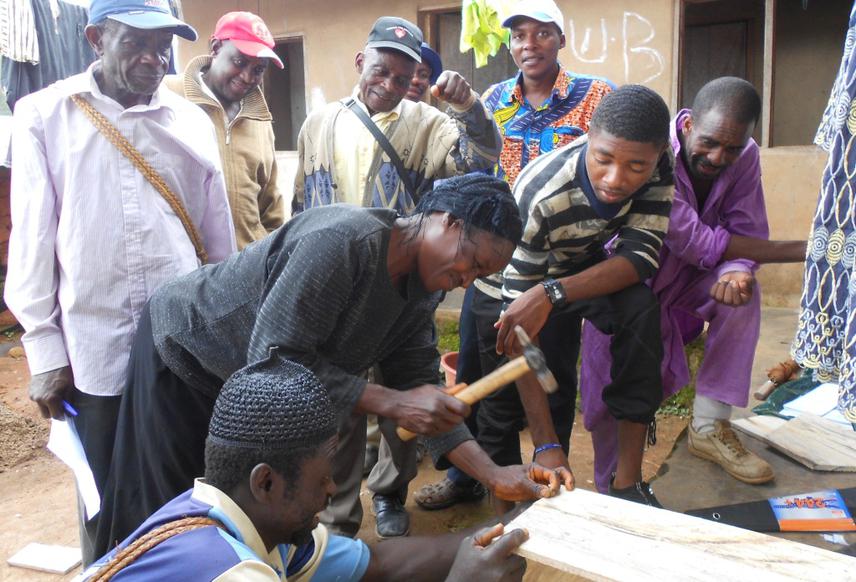Christian Tabifor
Other projects
29 Aug 2008
Awareness Campaign for the Protection of Endangered Great Apes in the Tubah Upland Forest
The project aims to empower local destitute people with beekeeping skills as a way of addressing rural poverty and helping in conservation.

With widespread poverty the villages (Ngwo, Ekaw, Chikwa, Kenshi, Bantakpa, Alumfa, Ayi and Amassi) around Kagwene Mountain Forest are very vulnerable. The constant struggle with poverty gives pressure on the Kagwane Gorilla Sanctuary with a gradual natural forest loss. This threatens the survival of flagship species, the Cross River gorilla (Gorilla gorilla diehli) classified as Critically Endangered by IUCN’s Red List besides other rare species of flora and fauna. There is the urgent need to support the villages to alleviate poverty while contributing to conservation. Project Goals: (1) Provide the communities a new alternative stream of income through training and support in beekeeping (2) Aiding conservation by education linked to beekeeping.
The project which is in pilot its phase and to run for five months will provide a new stream of income for some villages around Kagwene Mountain forest through training and support in beekeeping practice. It will help in conservation efforts of the gorillas found at the Kagwane Gorilla Sanctuary. This through educating the target communities on conservation issues indicating the clear connection and importance of honey bees for conservation (trees, in pollination and crop production/agriculture). The project will provide self employment, encourage planting of bee loving trees and thus reducing the human pressure on the forest and gorillas. Through this pilot work from small beginnings, destitute people are empowered to plan their own pathways out of poverty while at the same time helping in the conservation of gorilla populations in their natural forests habitat.
Expected Outcomes:
- 50 destitute people will acquire skills in beekeeping that will help to generate self-reliance or self employment (economic empowerment) thus reducing burden to forest.
- One (1) local beekeepers group will be established. The establishment of 20 beehives on the community land. Beneficiaries will be able to establish less costly and durable bee hives with the use of local materials and will introduced modernised harvesting equipment
- Two (2) apiaries will be set up in the communities.
The local people get educated on the importance of conserving great apes: that is its flagship species, the Cross River gorilla and the other mammals, birds and herpetofauna in their natural forest habitat but also they will know that their forest is important for their livelihoods and requires serious attention, sustainable and wise use. There will be a positive change in attitude with increase in consciousness of the people towards local biodiversity conservation.